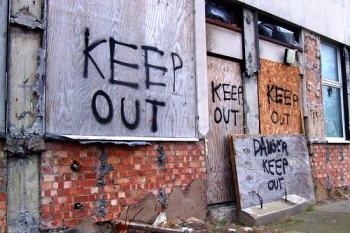So Michael Gove is about to announce a radical re-drafting of the History National Curriculum in an apparent response to the clamour of criticism his initial proposals received. The political response is to lampoon him for yet another ‘climb-down’ or ‘volt-face’ (I’m sure he’d prefer the Latin version) whereas the sensible response should be to welcome the fact that he appears to be prepared to listen and change his mind. Of course, it’s difficult to be that magnanimous to Gove and, no doubt there are, in any case, other, deeper, underlying reasons for the change of heart.
History is one of those subjects about which we often see fierce debate. I’ve been interested for a long time, going way back to my own A Level experience, which I was recounting to two young people of my acquaintance a couple of days ago. They had just finished their second year A level exams in History and were aghast to discover that, as far as I could recall, I was taught from one text book and, more or less, regurgitated what I had learnt in the exam. Their experience was of being required to comment on sources presented to them, unseen, in an exam and to make comments based on their own knowledge of the subject area. They had also completed a demanding piece of coursework for which they had had to conduct their own research which included finding so-called ‘primary sources’. We all agreed that, far from being ‘dumbed down’, as far as History at least was concerned, I had had the easier ride more than 40 years back.
The essential difference seems to be that History as it is now taught acknowledges that there is not one accepted version of ‘what happened’ and students are encouraged to develop their own understanding based on an analysis of the information available. I know from my own continuing interest in History that interpretations of events shift depending on the information available. For example, my initial understanding of the Second World War was gleaned from listening to what I have to call ‘primary sources’, my mother and grandmother, who lived through it. What they didn’t know about, of course, was Bletchley Park, ‘enigma’ and so on which, when considered, changes one’s view. Something similar will, I think, happen regarding the First World War, starting in 2014 as we begin centenary commemorations. I also recall visiting a museum in Soviet Prague in the 1970s and being shocked by the labels which told me about something called ‘The Great Patriotic War’, the Russian name for WWII and even more shocked to find out how many millions of Russians/Soviet people had been killed. Even the dates were different: for the Czechs, the war began in 1938!
I’d be interested to hear from any current teachers of History out there who would care to offer a more detailed and better informed critique of the pressures on History teachers to ‘teach’ a particular version of ‘what happened’. As Churchill (no longer required teaching on the National Curriculum apparently) said, “History is written by the victors,” although, I’m not sure who they are in the current context!

